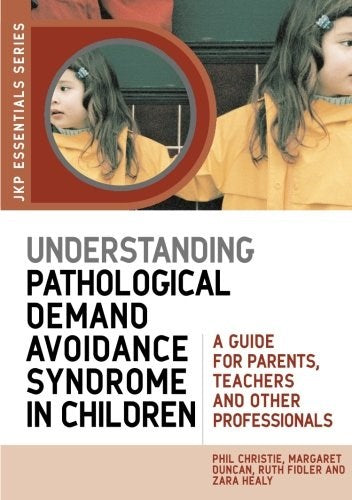Selling fast!
Get yours while you can.


9781849050746
Couldn't load pickup availability
Secure your shopping experience with various safe and trusted payment methods.
This straightforward guide offers a complete overview of Pathological Demand Avoidance Syndrome (PDA) and gives practical advice for overcoming the difficulties it poses in a wide range of contexts from diagnosis through to adulthood. Starting with an exploration into the background of PDA that answers many of the immediate questions triggered when a child is first diagnosed, the book goes on to look at the impact of the condition on different areas of the child's life and what can be done to help. The authors present useful information on early intervention options and workable strategies for managing PDA positively on a day-to-day basis. They also examine ways to minimize common difficulties that may be encountered at home and school, making life easier for the child, family and peers. The final chapters tackle new problems that can arise when the teenage years hit and how to assist a successful transition from adolescence to adulthood. Illustrative case examples are included throughout, and the book concludes with a list of valuable resources for further information and advice. Full of helpful guidance and support, this user-friendly introductory handbook is essential reading for anyone caring for, or working with, children with PDA.


At our Shopify store, we prioritize your safety and security. Here's how we ensure a secure shopping experience:
1. Secure Transactions: We use advanced encryption to protect your personal and payment information, ensuring it is safely transmitted and safeguarded.
2. Trusted Payment Gateways: Our store integrates with trusted payment gateways, ensuring your transactions are processed securely and efficiently.
3. Data Privacy: Your privacy is our top priority. We follow strict data protection policies to keep your personal information confidential and secure.
4. Secure Platform: Shopify provides robust security features and continuous monitoring against vulnerabilities, ensuring a safe shopping environment.
5. Verified Merchants: We are a verified merchant on Shopify, committed to providing authentic and high-quality products.
6. Transparent Policies: Our clear return, refund, and shipping policies provide peace of mind, knowing we stand behind our products.
7. Customer Support: Our dedicated customer support team is ready to assist with any concerns or questions you may have.
Shop confidently at our Shopify store, where your safety and satisfaction are our top priorities.
€17.99
Selling fast!
Get yours while you can.
